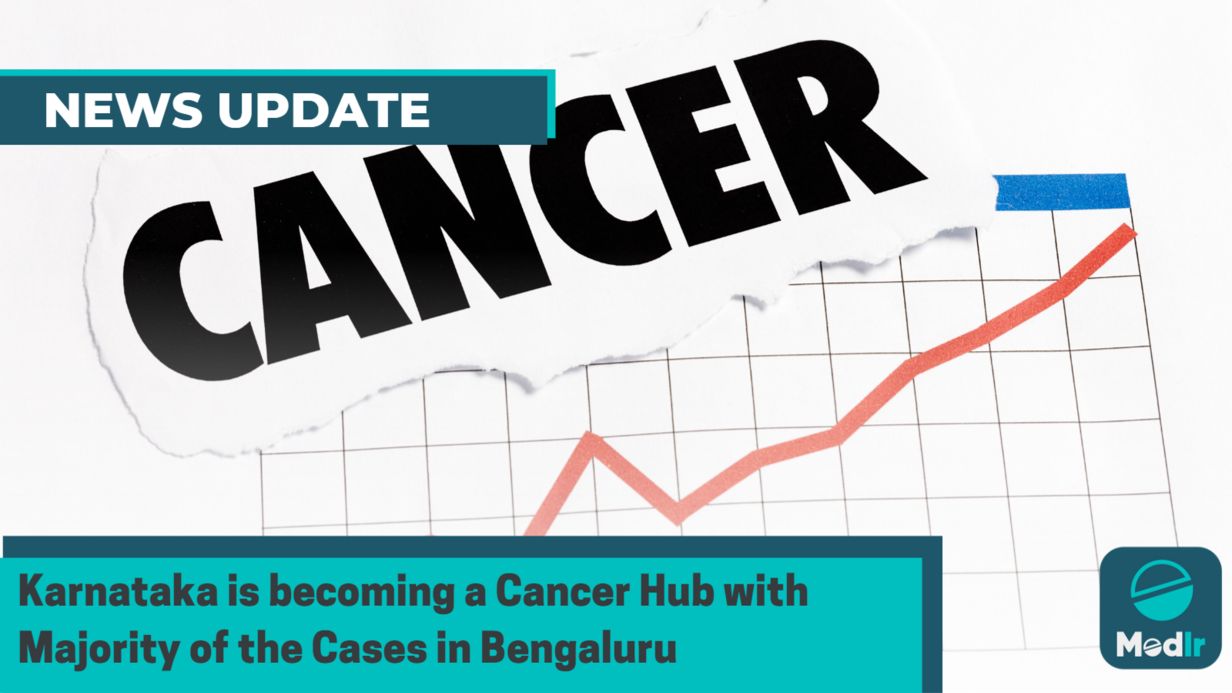Karnataka is becoming a Cancer Hub with Majority of the Cases in Bengaluru
Written by Shaveta Arora
Karnataka's cancer crisis escalates as Bengaluru emerges as a major hotspot, with alarming rise in cases. Lifestyle changes and lack of awareness contribute to this growing menace.

Bengaluru's reputed cancer care hospital, the Kidwai Memorial Institute of Oncology, has revealed some alarming information, which is why we are discussing cancer today. The hospital's latest release states that Karnataka is becoming a cancer hub, with Bengaluru, also known as Silicon City, having the highest number of cases.
Technological advancements have subjected us to a decline in our healthy lifestyle over the last few years. We have drastically reduced physical activity by working from the comfort of our couches with a few buttons, while having the world at our fingertips. This has resulted in numerous health problems. Deadly diseases like cancer may become a vulnerability when coupled with harmful addictions such as alcohol and tobacco.
Every month, Kidwai Hospital treats thousands of cancer patients. Between January and May of this year, 157,903 patients underwent screening and re-testing. From January of last year to December, the state confirmed 8,742,420 new cancer cases. A significant finding from the study conducted by the Kidwai Institute is that women are the most susceptible to cancer. Breast cancer was found to be more prevalent among patients, with 4.9% of women diagnosed with breast cancer during CT scans, compared to 4% of men diagnosed with lung cancer.
Dr Lokesh, director of Kidwai Hospital explained-
“There is a need to create awareness among people about cancer. Cancer is not only a deadly disease, but it is also a menace that is pushing the future of our country to the abyss." He added that the public needs to be aware of cancer and how to take precautions."
The doctor stated that incorporating seasonal fruits, green vegetables, and engaging in at least one hour of physical exercise daily can potentially lower the risks of cancer. Additionally, he emphasized the importance of maintaining menstrual hygiene for women and seeking medical expertise for any lactation-related issues as precautionary measures.